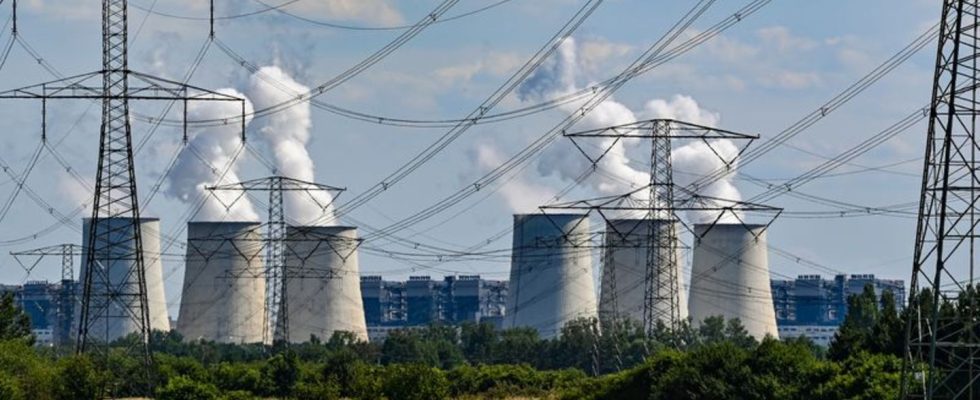Climate Protection Act
Climate Expert Council comments on greenhouse gas emissions in 2023
Water vapor rises from the cooling towers of the Jänschwalde lignite-fired power plant owned by Lausitz Energie Eisenbahn AG (LEAG). Today, climate experts are presenting a report on German greenhouse gas emissions. photo
© Patrick Pleul/dpa
The expert assessment of Germany’s CO2 balance is a rather formal step – but after the minister’s warning about weekend driving bans, it has significance for a coalition dispute.
Against the background of Transport Minister Volker Wissing’s warning against weekend driving bans Climate experts presented a report on German greenhouse gas emissions. Today’s deadline has legal significance: If sectors such as transport emit more than permitted, the responsible ministry must, according to current law, present an immediate program within three months to counteract this.
With this argument, FDP politician Wissing recently put pressure on a rapid reform of the climate protection law that would abolish this obligation – and threatened that otherwise drastic restrictions such as driving bans for cars with combustion engines could be necessary.
The deputy federal chairman of the CDU, Andreas Jung, said that the FDP was organizing a “smear theater”. “Volker Wissing is stirring up uncertainty to distract from the fact that he is not doing his homework on climate protection,” he told the “Stuttgarter Nachrichten” and the “Stuttgarter Zeitung”. The Climate Protection Act in no way requires driving bans, “but it does require intergenerational fairness in climate protection”.
Review of emissions data for the past year
Federal Economics Minister Robert Habeck (Greens) also expressed criticism of Wissing’s threat. “We reject driving bans,” he told the “Bild” newspaper. FDP General Secretary Bijan Djir-Sarai warned that the Greens must quickly give up their blockade on the climate protection law. “The planned economy climate protection law of the Merkel era must finally become a market economy and practical one,” he told the “Bild” newspaper. Otherwise there is a risk of “massive holiday frustration” among millions of citizens.
The Expert Council for Climate Issues examines the emissions data for the past year presented by the Federal Environment Agency (UBA). This is one of the legally stipulated tasks of the independent scientific committee. Chairman Hans-Martin Henning and his deputy Brigitte Knopf present their results in Berlin.
In its report presented in mid-March, the Federal Office assumed that German greenhouse gas emissions fell by 10.1 percent last year, but attributed this more to the weakening economy than to progress in climate protection. According to the UBA, the building and transport sectors once again missed their climate targets last year.
Disagreement over reform
The traffic light coalition made up of the SPD, Greens and FDP actually wants to reform the underlying climate protection law. In the future, this would mean that the emissions balance of all economic sectors would be more important, rather than individual sectors. The FDP in particular is pushing for this reform, which has already been agreed in principle, while the Greens fear a weakening of climate protection. The cabinet introduced the amendment last June, but the negotiations between the traffic light factions in the Bundestag are taking a long time.
Germany’s climate protection goals are bindingly regulated in the law. The current version stipulates that greenhouse gas emissions will be reduced by 65 percent by 2030 compared to 1990. Permissible annual emission levels have been set for individual sectors such as industry, energy, transport and buildings.
If the amended Climate Protection Act does not come into force by the end of the three-month deadline on July 15th, around 22 million tons of so-called CO2 equivalents would have to be saved on an ad hoc basis for transport alone – at least that is the warning from the Minister of Transport. According to him, this is only possible through far-reaching interventions such as weekend driving bans. He formulated this warning last week in a letter to the traffic light parliamentary group leaders.
FDP leader Lindner appealed to the Greens at the weekend not to block the reform of the climate protection law. If the Greens do not give up their blockade, “draconian restrictions on freedom up to and including bans on driving combustion engines” would be conceivable in Germany, he said. Coalition politicians from the Greens and SPD as well as associations accused Wissing of diversionary tactics and scaremongering.

